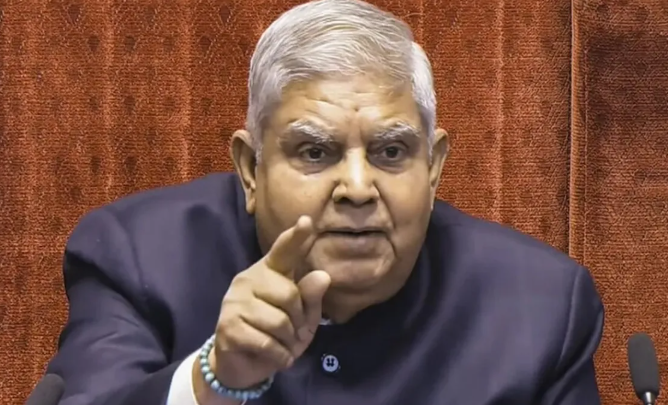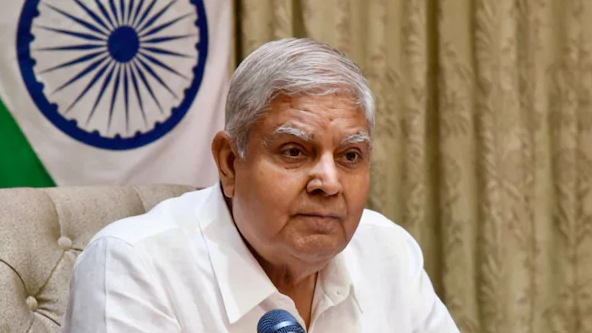Jagdeep Dhankhar, India’s 14th Vice President, resigned from office on Monday evening, citing health concerns and medical advice. His resignation, submitted to President Droupadi Murmu, takes effect immediately under Article 67(a) of the Constitution.
The 74-year-old leader wrote,
“To prioritise health care and abide by medical advice, I hereby resign as the Vice President of India, effective immediately.”
His resignation came after a full working day in Rajya Sabha, where he administered oaths to newly elected members — a gesture that underlined his dedication despite ongoing health issues.
🏥 Recent Health Concerns
Mr Dhankhar had been hospitalised in March at AIIMS due to cardiac-related ailments. More recently, he collapsed during a public event at Kumaon University, further raising concerns about his health.
🏛️ A Constitutional Exit, Only the Third of Its Kind

Jagdeep Dhankhar is now the third Vice President in Indian history to resign before completing the term. The two others were:
- V.V. Giri (1969) – resigned to contest the presidential election
- R. Venkataraman (1987) – resigned after being elected President
Mr Dhankhar still had two years remaining in his term, which began in 2022 when he succeeded Venkaiah Naidu, defeating Opposition candidate Margaret Alva.
🤝 Farewell With Gratitude
In his farewell letter, Dhankhar thanked President Murmu for her “unwavering support” and described their working relationship as “soothing and wonderful.” He also acknowledged the Prime Minister and Council of Ministers, stating that their cooperation was “invaluable.”
Prime Minister Narendra Modi, during Dhankhar’s nomination, had praised him as “Kisan Putra” (son of a farmer) and said his tenure would be “excellent and inspiring.”
📚 Known for His Assertive Stance in Bengal

Before becoming Vice President, Dhankhar served as Governor of West Bengal, where his frequent confrontations with Chief Minister Mamata Banerjee often made headlines. A constitutional expert and lawyer by profession, his tenure in Bengal was marked by assertive interventions and bold commentary.








